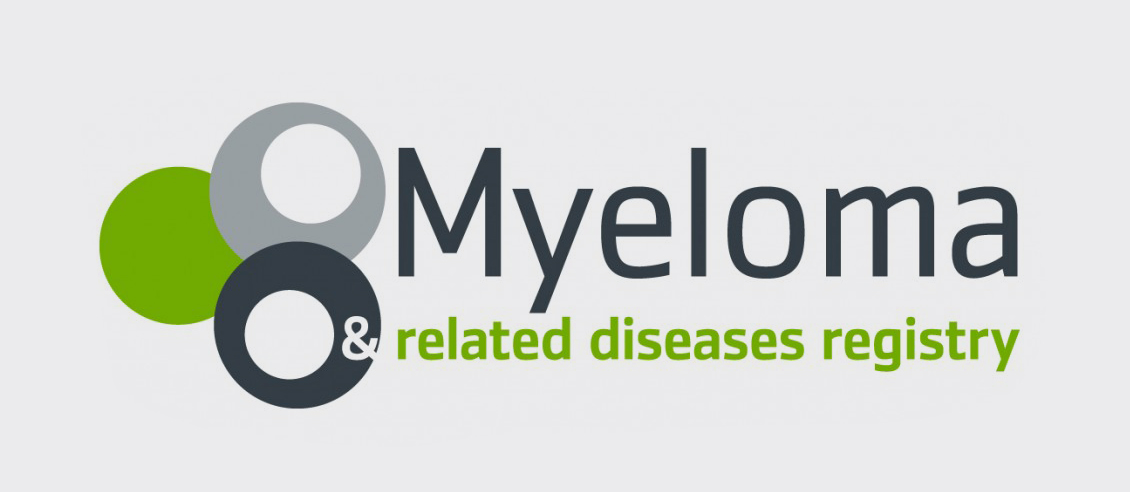The Myeloma and Related Diseases Registry

The MRDR is an Australian and New Zealand Registry that collects information on patients with multiple myeloma (MM), monoclonal gammopathy of undetermined significance (MGUS), plasma cell leukaemia and plasmacytoma, in order to improve the care of individuals with these diseases. The registry is a partnership with participating hospitals and is administered through Monash University. It opened to recruitment in 2013.
Thanks to participants and participating sites, MRDR now have over 1900 patients registered from 27 sites, and a further 14 new sites will soon have approval to join the registry. So far 68% of cases are MM, 31% MGUS and small numbers of the other diagnoses.
The aims of the MRDR are to:
- monitor patterns in patient care and access to care
- explore factors that influence outcomes including quality of life
- act as a resource for clinical trials and further research
How can you be involved?
If you are a patient, ask your treating specialist if your hospital contributes data to the MRDR and if you are eligible to participate. If you are eligible you will receive patient information about the registry including how to opt out if you change your mind.
To contact the MRDR:
Please visit our website: mrdr.net.au
Email: sphpm-myeloma@monash.edu
Phone: 1800 811 326
MRDR activities:
Publications & Presentations
The registry has published on its design and development, and a review of myeloma in the ‘real world’, authored by MRDR PhD student, Dr Krystal Bergin. Several more papers are in the pipeline, looking at renal impairment, stem cell transplantation, non-transplant eligible patients and survival in Multiple Myeloma (MM). Results have been presented at key state, national and international meetings in 2017 on diagnostics and treatment, renal impairment, stem cell transplant, outcomes for people of Pacific Islander ethnicity from New Zealand, and patient-reported outcomes. It is pleasing to see registry data being used in investigations that may lead to improvements in practice.
Substudies
The Myeloma 1000 project is the only prospective ‘liquid biopsy’ biobank for MM in the world, and MRDR have enrolled 222 patients (104 MM: 118 MGUS). This study will use the MRDR database to link biological and clinical data to better predict treatment response and identify patients at risk of developing MM or disease progression. It involves a once-only blood collection from 1000 MM and 1000 monoclonal gammopathy of undetermined significance (MGUS) patients before treatment. MRDR are expanding the number of sites.
IMPROVE (Immunoglobulins in myeloma patients: research into outcomes, variation in practice and epidemiology) is a registry-based study recently funded by the National Blood Authority through to 2020. It will describe the use of immunoglobulins (IVIg) in MM, including differences in practice between hospitals. Results from this study will inform policy and clinical practice on immunoglobulin therapy in MM patients.
My-PROMPT is a small multicentre pilot trial testing whether reporting patients’ quality of life questionnaire results to clinicians before clinical visits (see diagram) is feasible and whether it may improve care. This study targets newly diagnosed patients within 7 days of starting treatment. Recruitment is underway. Takeda and Gilead are funding this project.
International collaborations:
The MRDR has secured funding from Janssen for an Asia-Pacific expansion of the registry. Korea is the first pilot site, then Singapore, Hong Kong and Taiwan. MRDR look forward to collaborating with regional colleagues and the opportunity to study patient characteristics, treatment and outcomes in each country.
MRDR have ongoing collaborations with sister registries in Austria (comparing diagnostics, access to care and first-line treatment) and Korea (comparing bortezomib- versus thalidomide-based first-line chemotherapy), led by PhD student, Dr Krystal Bergin. These collaborations help to identify potential areas for improvement in care on both sides.
The Australasian Myeloma Research Consortium (AMARC)
AMARC uses the MRDR as a platform for early-phase clinical trials, and recruitment to the first AMARC trials is underway. The MRDR’s infrastructure and established national network of sites make it an attractive platform from which to cost-effectively conduct clinical trials, and patients at MRDR sites could potentially benefit from the opportunity to participate in these trials.
Engaging with patients and collaborators
The 5th annual MRDR Interest Group breakfast meeting was held in Sydney on October 2017 at HAA, the key haematology meeting for Australia and New Zealand. The breakfast was well attended, with strong representation from clinicians, patient groups, sites, and industry partners. It provided a great opportunity to showcase the registry and engage with current and new collaborators. All are welcome at the next breakfast, which will be at Blood (formerly HAA) in Brisbane later in 2018.
Snowdome recognises the outstanding efforts of MRDR and wishes them much success.

